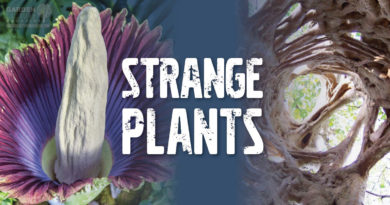Cow Farts and Burps are No Joke: How Some Companies are Curbing Livestock Gas
Companies worldwide are looking at innovative ways to curb the harmful effects gassy cows have on the environment. Between burps and farts, the UN’s Food and Agriculture Organization (FAO) says livestock creates 14.5% of all human-caused greenhouse gas emissions. Beef production is a primary culprit, accounting for about 41% of those emissions!

One of the reasons cattle create so many greenhouse gases is that they have a complex digestive system that includes four stomachs! As the cows digest the foods they eat, like grass, they produce methane, released when they burp and fart. Methane is the most potent gas contributing to global warming.
Burp-Trapping Masks
A UK-based startup has created a burp-catching muzzle that fits over a cow’s nose and mouth area. Zero Emission Livestock Project (ZELP) says the masks will help slow greenhouse gas emissions.
The cow mask is fairly high-tech; it monitors the percentage of methane released by the animal, and when high levels are found, it converts the methane into water and CO2.
A solar cell and thermos electric generators mean the mask automatically re-charges in direct sunlight.
ZELP says the mask lasts about four years and is recyclable. Beyond reducing burp-caused methane emissions by 60%, the muzzle can also detect when a cow is in heat and where it is in the fields.
“If my cow ain’t farting… must be me!”
It’s a line with the potential to go down as one of the classics in the world of advertising. In a hilarious video created by the fast-food chain Burger King, an adorable young cowboy belts out a tune about how cow farts and burps aren’t as funny as they seem.
“When cows burp and fart and splatter, well, it ain’t no laughing matter.
They’re releasing methane every time they do.
And the methane from their rear goes up into the atmosphere,
and pollutes our planet warming me and you.”
-lyric from Burger King ad
Admitting that it contributes to the problem, the burger joint has been looking for ways to be a part of the solution. It has teamed up with researchers from the US and Mexico, and what they found might end up being a real difference-maker in the world of beef production.
The study, commissioned by Restaurant Brands International, finds that just like humans use natural remedies to help digestive issues, certain foods can help cows feel a little less gassy.
Adding 100 grams of dried lemongrass leaves to a cow’s daily feed reduces methane emissions by an average of 33% over three or four months!
Who knew a less gassy rear could lead to a healthier atmosphere?
To be clear, in no way does Garden Culture Magazine support a fast-food diet, but we do love initiatives taken to reduce negative impacts on the planet!
Catherine Sherriffs
Catherine is a Canadian award-winning journalist who worked as a reporter and news anchor in Montreal’s radio and television scene for 10 years. A graduate of Concordia University, she left the hustle and bustle of the business after starting a family. Now, she’s the editor and a writer for Garden Culture Magazine while also enjoying being a mom to her two young kids. Her interests include great food, gardening, fitness, animals, and anything outdoors.
Latest posts by Catherine Sherriffs (see all)




